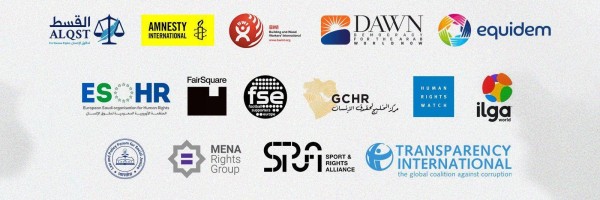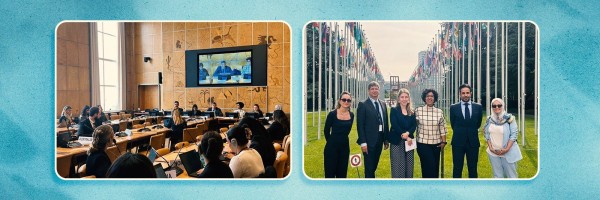ALQST welcomes the joint statement, delivered by Australia on 23 September 2019 at the 42nd session of the UN Human Rights Council (HRC) on behalf of 24 states, expressing deep concern over the human rights situation in Saudi Arabia and calling for concrete action. ALQST nevertheless calls for meaningful implementation of the recommendations.
In the letter, which can be read here, the 24 co-signatories expresses their “deep concern”, highlighting the persecution and intimidation of human rights defenders, women’s rights activists, journalists and dissidents, many of whom “remain in detention or under threat”. They single out reports of torture, arbirtrary detention, enforced disappearences, unfair trials, and the harrassment of individuals engaged in human rights, pointing to the scale of human rights violations in Saudi Arabia.
Citing the findings and recommendations of the June report of the Special Rapporteur on extrajudicial, summary or arbitrary executions Agnes Callamard into the killing of Saudi journalist Jamal Khashoggi, the 24 states call for truth and accountability to be established. They also “urge Saudi Arabia to uphold the highest standards in the promotion and protection of human rights and fully cooperate with [UN human rights bodies]”, for “an end to impunity for torture and extrajudicial killings" and for Saudi Arabia to end its use of the death penalty.
ALQST Director Yahya Assiri observed: “It is encouraging to see countries, led by Australia, taking a stand for human rights in Saudi Arabia. They are right to focus on the systematic violations taking place in the country, including arbitrary detention, torture, and executions. But if Saudi Arabia does not respond to this latest international appeal, further scrutiny must be applied, and a monitoring mechanism over the human rights situation must be established. We need to see meaningful implementation of the recommendations.”
This latest joint statement follows increasing international scrutiny of Saudi Arabia. Most notably, it follows the landmark joint statement at the 40th session of the HRC in March 2019, in which 37 countries expressed significant concern about the human rights situation in Saudi Arabia. That session, Saudi Arabia also faced calls to improve its human rights record following the adoption of its Universal Periodic Review (UPR).
At the 41st session of the HRC in June 2019, there was further international pressure as Special Rapporteur Agnes Callamard released her report into the murder of Jamal Khashoggi, finding Khashoggi to be a victim of a premediated extrajudicial killing for which the state of Saudi Arabia was responsible. At the same session, 40 NGOs called member states to establish a UN monitoring mechanism over the human rights situation in Saudi Arabia.
ALQST welcomes this joint statement and calls upon more countries to co-sign (they have up to two weeks). In particular, ALQST calls on those who have contacts with politicians, media and individuals in those countries to reach out to them and encourage their country to sign it.
The States that have signed the joint statement so far are: Belgium, Canada, Croatia, Denmark, Estonia, Finland, Germany, Iceland, Ireland, Latvia, Liechtenstein, Lithuania, Luxembourg, Monaco, Montenegro, Netherlands, New Zealand, Norway, Peru, Slovakia, Slovenia, Sweden, The United Kingdom.




